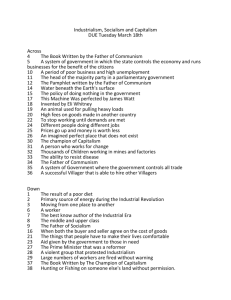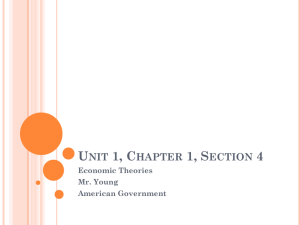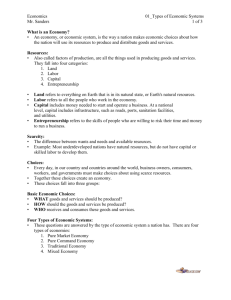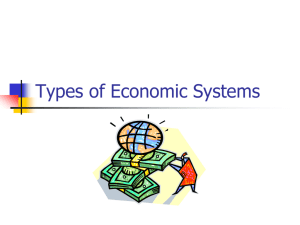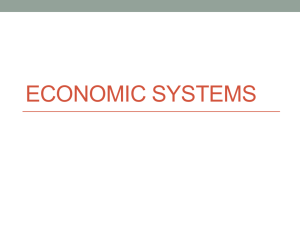ECONOMIC SYSTEMS
advertisement
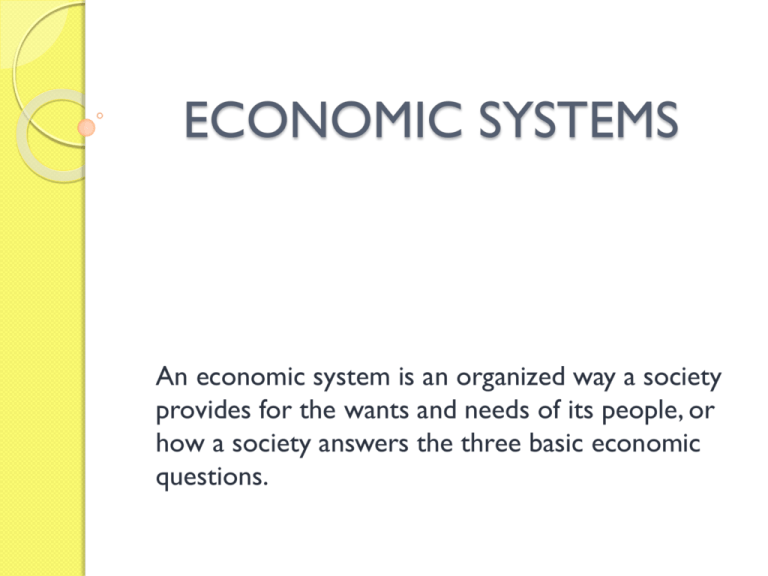
ECONOMIC SYSTEMS An economic system is an organized way a society provides for the wants and needs of its people, or how a society answers the three basic economic questions. Capitalism Capitalism is based on the theories of Adam Smith, who wrote The Wealth of Nations in 1776. Capitalism is based on the idea of laissezfaire economics. Adam Smith is known as the “father” of capitalism and The Invisible Hand Theory. Important beliefs include: Free enterprise (economic freedom) Freedom of choice Private property Profit motive Competition Self-interest The US Economy The economic system in the United States is based on a capitalist or market system. Today it is known as a mixed market economy due to government regulation and oversight of the economy. In a market system, economic decisions are made by individuals. What role do patents and copyrights have in a market economy? Circular Flow Diagram of a Mixed Economy Other Economic Systems Traditional Economies – economic decisions are based on customs and beliefs. Family and community ties are strong. Command Economies In command economies decisions are made by government leaders and consumer choice is often limited. Both communism and socialism are considered command, or planned, economies. Communism Communism is based on the theories of German philosopher Karl Marx. Marx wrote The Communist Manifesto in 1848. Under communism, factors of production are collectively owned and directed by the state. Socialism A system in which the government owns some factors of production and has a role in determining what and how goods are produced. Private property ownership is allowed to some degree. Socialism is considered less efficient than capitalism. A final thought… Most economic systems today are mixed and fall somewhere in the spectrum between pure capitalism and pure communism.



